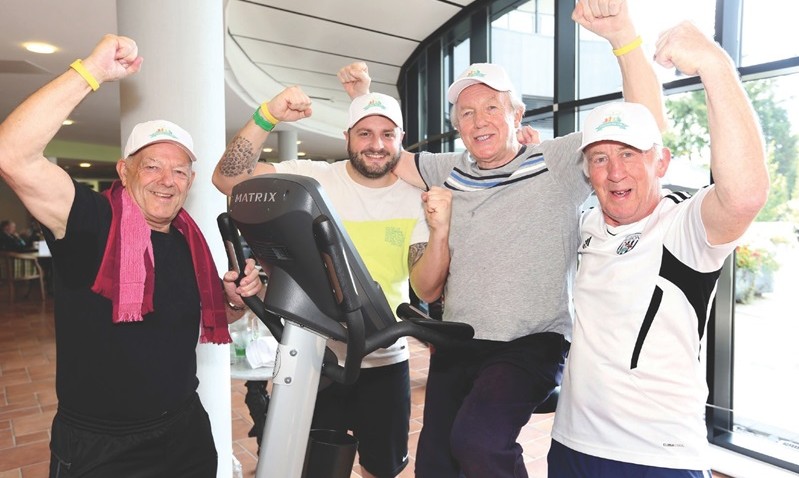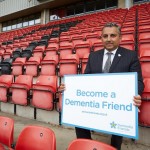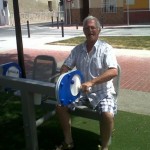Open most gym brochures, fitness magazines, or adverts for sportswear and you might think that exercise and living a physically active lifestyle is the preserve of those in their twenties and thirties.
We seldom see images of anyone over fifty, let alone sixty, seventy, or eighty on a treadmill or modelling the latest trainers. This implies that older people do not realise the benefit and have no real interest in exercising.
But of course that’s far from the case. NHS guidelines recommend around 2.5 hours of moderate exercise and muscle strengthening per week for over 65s, and we know that throughout our lives physical activity has a vitally important role preventing illnesses and accidents, speeding up recovery, and simply awarding us satisfaction and joy.
And despite what the media might depict, exercise is also something that older people are interested in and would like to do more. While around a third of the 1,000 respondents aged 65 or over, who were surveyed for ARCO’s new research, identified themselves as ‘not very’ or ‘not at all’ active, we found that 70% of all respondents were keen to do more exercise.
If lack of enthusiasm is clearly not a barrier, what is holding people back? Our research showed that costs and views about physical inability are clearly important factors. But a shortage of supportive and inclusive environments is perhaps an often-overlooked aspect that is also putting many people off.
For example of those surveyed who described themselves as less active but who wanted to do more exercise, nearly a quarter listed their reasons for not using nearby facilities as feeling self conscious in environments such as gyms often dominated by young people. A further 22% said that facilities don’t accommodate the needs of older people.
These responses flag up the importance of making sure that people have access to exercise opportunities at the right price, but also in suitable and non-threatening environments. High street fitness facilities can do far more to be inclusive, but tailored fitness facilities like those offered in extra-care housing and retirement communities also offer an option for those of us wishing to age actively.
Unlike in care homes, in retirement communities people live independently in properties that they own, part-own or rent, but with the benefit of access to on-site care services and a wide range of activities should they need or wish to use them. Crucially, these include fitness facilities such as gyms, health trainers, and exercise classes – all easily accessible to residents and tailored to their specific needs and lifestyles.
Earlier this year research by Aston University found that health care costs for residents in extra-care villages run by the ExtraCare Charitable Trust were reduced by 38% thanks to their on-site wellbeing services. These are significant figures. And as they show, fitting housing, health and wellbeing facilities around older people’s aspirations and lifestyles provides the twin win of benefiting individuals, who are enabled to live independently for longer and benefiting society.
Some of the greatest ambassadors for healthy and active living that I know of are over seventy. Nowhere was this better demonstrated than during ARCO’s recent Wellbeing Weekend where residents from retirement communities across the UK donned their lycra and took part in a series of sports challenges, raising money for charity and showcasing how they stay fit and active in their communities.
It was an immensely inspirational weekend. The challenge for us all now is to make sure that more of us have the opportunity to benefit from environments like these which empower and support us to live healthily and independently as we age.
This involves challenging assumptions often held by media and businesses about what older people want, demonstrating older people’s enthusiasm and particular needs, and making sure that specialist housing and lifestyle aspirations for older people are taken seriously in government debates. No easy task, I’m sure you’ll agree – but something we’ll certainly be working towards with vigour.
Micael Voge is Executive Director of Arco (the Associated retirement community operators), who represent the retirement community sector in the UK.
To find out more about retirement communities or ARCO’s latest research on older people and physical activity visit www.arcouk.org





